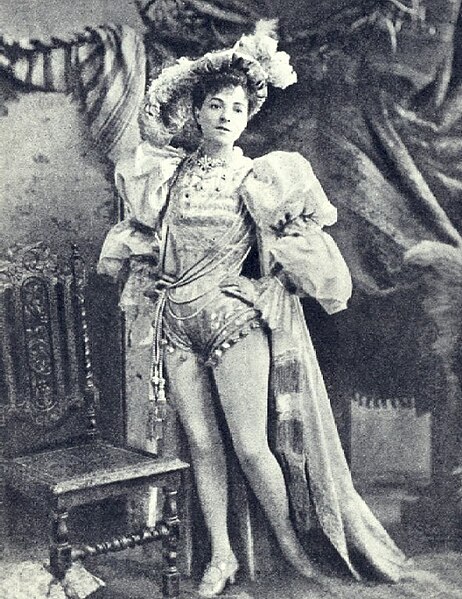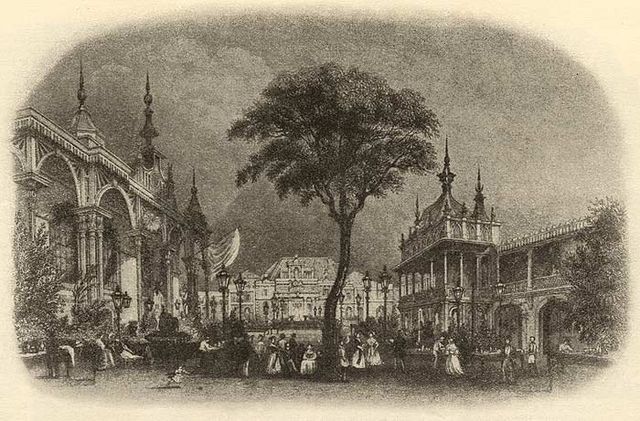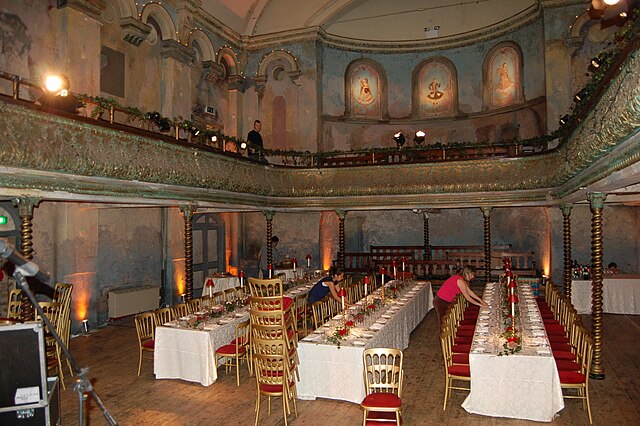Matilda Alice Powles, Lady de Frece was an English music hall performer. She adopted the stage name Vesta Tilley and became one of the best-known male impersonators of her era. Her career lasted from 1869 until 1920. Starting in provincial theatres with her father as manager, she performed her first season in London in 1874. She typically performed as a dandy or fop, also playing other roles. She found additional success as a principal boy in pantomime.
Cards of Tilley, performing in drag on the right
Poster for Vesta Tilley performing as Burlington Bertie
Vesta Tilley performing as a principal boy
Publicity photograph of Vesta Tilley dressed as a foppish young man
Music hall is a type of British theatrical entertainment that was most popular from the early Victorian era, beginning around 1850, through the Great War. It faded away after 1918 as the halls rebranded their entertainment as variety. Perceptions of a distinction in Britain between bold and scandalous music hall entertainment and subsequent, more respectable variety entertainment differ. Music hall involved a mixture of popular songs, comedy, speciality acts, and variety entertainment. The term is derived from a type of theatre or venue in which such entertainment took place. In North America vaudeville was in some ways analogous to British music hall, featuring rousing songs and comic acts.
The Eagle Tavern in 1830
The Oxford Music Hall, c. 1875
The interior of Wilton's Music Hall (here, being set for a wedding). The line of tables give some idea of how early music halls were used as supper clubs.
Interior of the Canterbury Hall, opened 1852 in Lambeth








